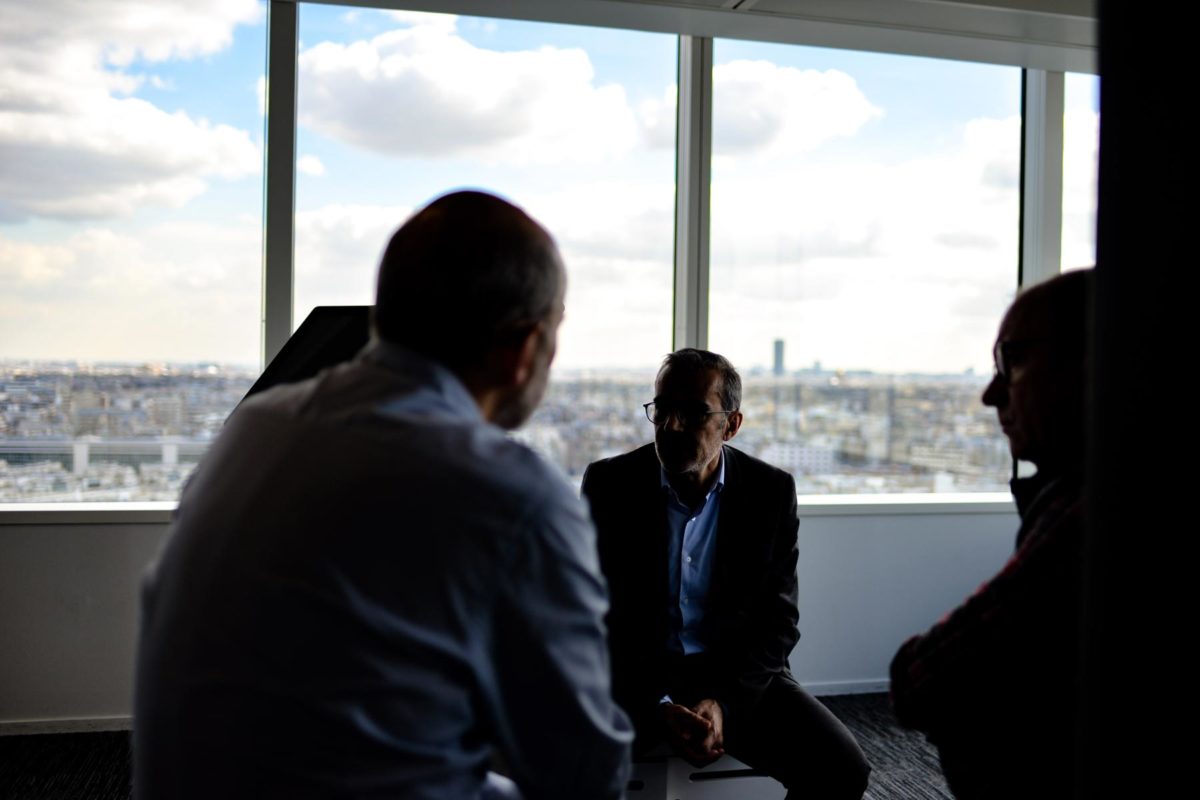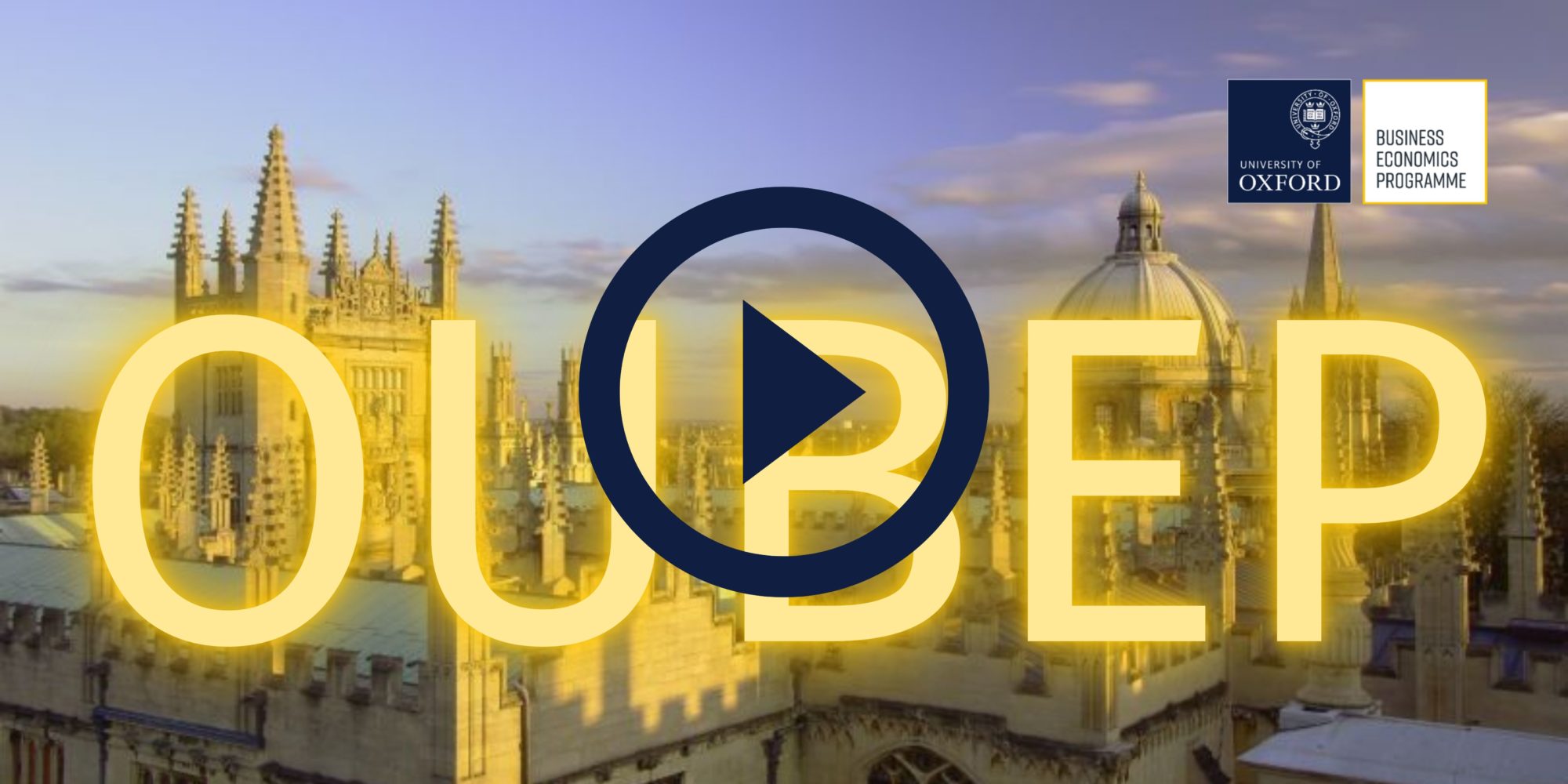Who attends?
We carefully select delegates to create a diverse and cosmopolitan environment with experience and insight from every business sector.
Our attendees are typically high-potential business executives and senior decision-makers in policy-making and NGO roles. They are often identified by their companies as the ‘leaders of tomorrow’, and will have a minimum of five years’ leadership experience.
We welcome delegates that share the desire to explore the latest economic theory, challenge their existing way of thinking and share ideas
We pride ourselves on creating cohorts where that represent all business sectors and senior roles. Our delegates include Chief Operating Officers from the private sector, Managing Directors from the public sector, NGO Project Managers, Engineers that work across any sector and everything in between.
Do you think a better understanding of economic theory and its application would help you make more informed decisions?
Do you need to make decisions in a constantly changing environment?
Would you benefit from meeting industry leaders from different industry sectors and countries?
Do you believe that it is imperative for business leaders to have access to the latest evidence and research from the world-top research centres?
Do you need a refresher in your undergrad degree / boost your education?
Are you a business leader in a strategic role that wants to better understand economics?
If you have answered yes to more than one of these questions, you will benefit from the programmes that OUBEP offers
Testimonials
‘I achieved real breakthroughs in my thinking’
Ruth Crowell, Chief Executive, London Bullion Market Association
I am chief executive at the London Bullion Market Association, which is the standard-setting body for the gold industry. We’re working in an unusual market with a lot of history – it has a longer history than the USA! – but facing some very contemporary challenges. For example, we deal with responsible sourcing and what that means for the gold market, and how we can make meaningful change.
It’s a fascinating and intellectually stimulating job, touching on science, international relations, ethics – but I always thought that I had a bit of a blind spot when it came to economics. So when our new Independent Chairman, Dr Paul Fisher, suggested nominating me for this programme, I jumped at the chance.
It was, as I expected, a very intense programme — an efficient and interesting way to gain an enormous amount of knowledge in a short period of time. I really liked the balance between the academic teaching sessions and the outside speakers who came from industry – and of course the other participants on the programme brought their own expertise and experience too. As an American, the ‘syndicate group’ format was new to me but I found it was a good way to develop a deeper understanding of what we were being taught.
It was also good to be meeting people at a senior level in a neutral space. We weren’t competitors so we could act as sounding boards for each other and talk about challenges. The fact that they were in completely different industries was helpful in bringing a range of perspectives that you probably wouldn’t get anywhere else.
It may sound like a simple thing but the fact that I’ve done OUBEP means that I can now read the Economist and the Financial Times with a lot more understanding. I’m familiar with the terminology and know what the concepts mean, so it all makes a lot more sense. But there were also moments on the programme when I achieved real breakthroughs in my thinking: I realised, for example, that there is a public service element to economics which is certainly not how I perceived it originally. I also got some insights into what Paul, our Chairman, was going through when he was on the Bank of England monetary policy committee during the financial crisis. I had huge respect for what he was doing, of course, but had no idea of the challenges involved and the limitations they faced in terms of what information was out there.
Some of what we learnt on the programme could be translated immediately into action. Not all of it, and not in every sector; but, for example, when we were discussing auctions for natural capital, the guys in the chemical companies said that it would have a direct impact on the decisions that they were making.
Having experienced the programme last year myself, I nominated my deputy, Sakhila, to participate this year. It is a big investment in an individual, both financially and in terms of time away from the office, and I can understand that some organisations worry about it – but it does send a very strong message to star performers about how much they are valued, and how much the company is willing to support their intellectual and career development.
In practical terms it can also contribute to strengthening the leadership pipeline. Last summer was probably the longest I have been away from the office; we had to prepare for it carefully in the business, and Sakhila was a vital part of the solution. She stepped in and made necessary decisions, without interrupting me or waiting until I got back. Part of the job as chief executive is to make sure that there is a plan for what happens after you and how the company will evolve, and also a contingency plan in case something happens to you in the meantime. OUBEP can contribute to your planning for both those eventualities.
Ruth attended OUBEP in 2017, returning in 2018 for the Topical Economics day.
‘People in the business are making decisions based on the theories that we learnt on the programme’
Michael Crow, Head of UK Regional Public Affairs, RBS Communications
I came on the programme expecting to broaden my knowledge, and also to be challenged and taken out of my comfort zone – and all of those objectives were met.
OUBEP is about economic theory but also about how you apply that theory in the ‘real world’. You get to learn a little bit about Oxford University, and you’re also meeting a wide variety of people from many different industries all over the world. So it is not just about what goes on in the classroom: it’s about what you are discussing over a beer and learning from the different beliefs and experiences of the other participants.
It was really intense, although that was what I expected. It allowed me to use my brain in a different way – perhaps more in the way that I used it at university than at any time since. It was quite refreshing to discover that I could still think like that! I found it really helpful in making me reflect on where I am and what I am doing and how I could improve the way I work.
I know that people in the business are making decisions based on the theories that we learnt on the programme. So they are dealing with supply and demand and applying game theory, making the decisions that we in the communications team have to communicate. Having an understanding of how they are making these decisions and what lies behind them is therefore extraordinarily useful.
Concepts such as supply and demand sound fairly simple, but now I have an idea of how complicated they can be, and how far-reaching the implications are. For example, auctions affect many different markets and many different types of markets — whether it is TV rights or permits or franchises. Ideas such as game theory give insights into why people have made certain decisions. So while they might not be directly applicable to my team, they can help us understand more about why people within the business, as well as customers and competitors, are thinking and acting the way they do.
I work in a political space so another fascinating aspect of the programme for me was listening to other European participants talking about what was going on in their countries. It was particularly interesting to hear their perspectives on the UK and Brexit, of course, but just speaking to people and seeing how their businesses work in their political environments compared with our political environment was incredibly useful.
The Topical Economics Programme, which this year focused on Averting Environmental Collapse, I found very useful and relevant. It was all about organisations like the one I work for – why are banks lending to the renewables sector? Why are they not funding coal fire power stations? Why have they made those decisions in the business? Is it about reputation, is it about the bottom line or is it a combination of both?
If you are considering participating in this programme I would say, ‘Do it. Be prepared to work hard but it will be worth it. It will help you not just understand economic theory, but how economic theory fits in to real life.
‘It gives you an opportunity to come and see Oxford and Oxford University and it gives you the opportunity to interact with people from a huge number of backgrounds, a huge number of businesses and a huge number of beliefs.’
The Ultimate Leadership accelerator
At the core of the Oxford University Business Economics Programme is an intensive, one-week development course for the next generation of senior leaders. By combining high-calibre academic tuition, industry-leading keynote speakers, and a diverse group of delegates, OUBEP creates a dynamic space to explore economic theory and applications to help solve problems and create strategic impact.
More about The Summer Programme:

OUR FACULTY
The OUBEP teaching faculty brings together academic and industry experts, who combine world-leading research with real-world experience. The faculty for 2019 are currently being finalised. The 2018 faculty are listed below.

Benefit & Impact
Nobody can ignore the wider economic environment. To be more effective in your decision-making, you need economic knowledge, as well as a collection of tools and creative thought-processes to help you react and adapt to the economy. These are the skills that OUBEP teaches.
